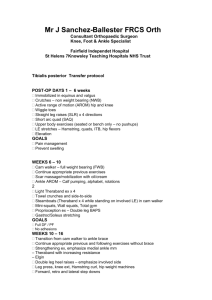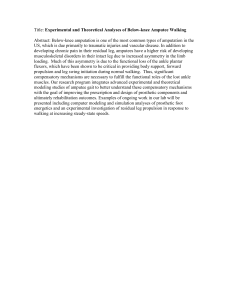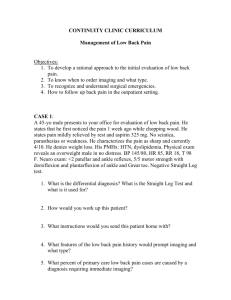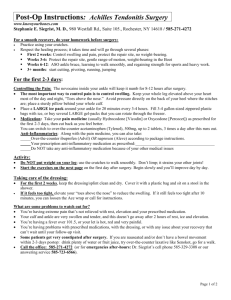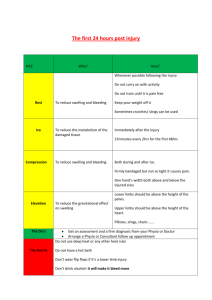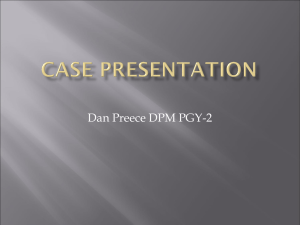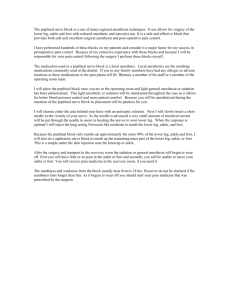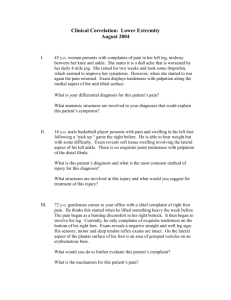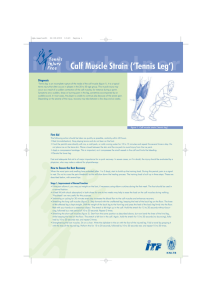Ankle Sprains - Stourport Health Centre Medical Practice
advertisement
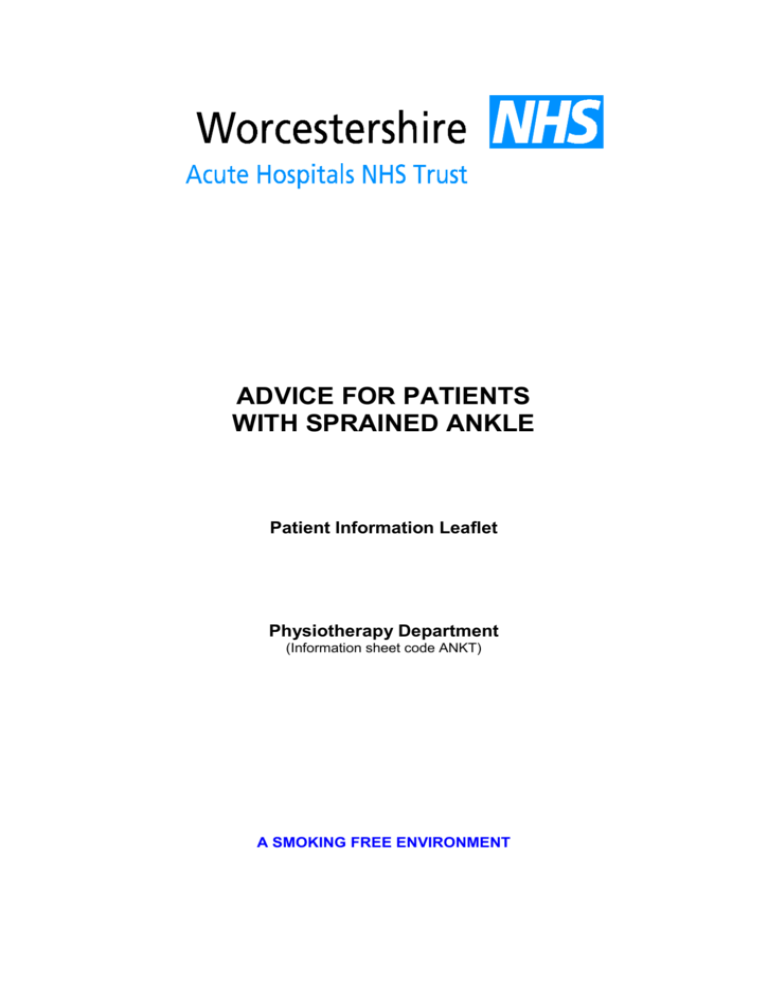
ADVICE FOR PATIENTS WITH SPRAINED ANKLE Patient Information Leaflet Physiotherapy Department (Information sheet code ANKT) A SMOKING FREE ENVIRONMENT Dear Patient This advice and exercise sheet has been produced by Senior Physiotherapists working within Worcestershire Acute Hospital NHS Trust. It offers simple advice and exercises to help you safely manage your ankle problem, often the right advice and exercises are all that is needed. This leaflet has been made available to your GP who may ask you to try the advice and exercises prior to referring for Physiotherapy. Alternately, you may be given this leaflet in the Accident and Emergency Department or whilst you are on a Physiotherapy waiting list. This leaflet is also available as a down load from the Trust’s website www.worcestershirehealth.nhs.uk/Acute_Trust/Physiotherapy Follow the advice and exercises with care. If any of the exercises make your pain worse STOP and seek advice. You are likely to be experiencing some or all of the following symptoms:1. Pain 2. Swelling and bruising 3. Stiffness and loss of movement in the ankle 4. Tightness in the calf muscle FOR PAIN AND SWELLING 1. Take the medication your GP has prescribed 2. In the first week or so ice may help both the swelling and the pain. Use every 2-3 hours especially in the first 48 hours sitting with your leg elevated (ankle higher than hip). Use the ice pack for 10 – 15 minutes only (Take a packet of frozen peas, wrap them in a damp tea towel and place them over your ankle. Do not eat the peas afterwards, label the packet and keep re-using). Gel packs are also available now which can be used in exactly the same way as peas. NB DO NOT USE ICE ON YOUR ANKLE IF YOU HAVE POOR SENSATION OVER THE AREA, REYNAULDS SYNDROME, AN INFECTED WOUND, OR IF YOU HAVE CRYOGLOBULINAEMIA 3. Use a double tubigrip from your toes to your knee as compression will help to reduce the swelling 4. Use a walking aid if provided for the first few days. Try to walk as normally as possible with equal stride lengths. Exercises to reduce stiffness and increase movement Please try all the exercises below gradually increasing them as the ankle improves. It is okay to experience some discomfort but do not push the ankle into pain. If you have used ice, allow 30 minutes before exercising. In the first 48 hours after injury Gently move your ankle up and down and side to side every hour. Repeat each movement 5-10 times. After 48 hours Continue exercises above trying to increase movement in all directions. Compare the movement to the other ankle. Sit with one leg straight out in front of you. Put a band around your foot. Gently pull the band and feel the stretch in your calf. Hold approximately 10 seconds. Repeat 10 times Pull on the band on the little toe side to encourage the foot to turn out. Hold approximately 10 seconds. Repeat 10 times. Pull on the band on the big toe side to encourage the foot to turn in. Hold approximately 10 seconds. Repeat 10 times. Once you are able to take weight on the leg, try balancing on the affected leg for 30 seconds at a time (hold onto something for balance) Stand in a walking position with the leg to be stretched straight behind you and the other leg bent in front of you. Take support from a wall or chair. Lean your body forwards and down until you feel the stretching in the calf of the straight leg. Hold approximately 30 seconds – relax. Repeat 3 times At about 2 weeks With equal weight on both feet, push up onto your toes and down again. Repeat 10 times. When you can do this comfortably, try pushing up on your toes on one leg at a time. Repeat 10 times on each leg. NB. If you feel the exercises are making your pain worse STOP DOING THEM AND SEEK ADVICE Queries:If you are unsure about any of the advice in this leaflet Or If you require further advice from a Chartered Physiotherapist Please contact your local Physiotherapy Department between 8.30 – 4.30; Monday – Friday on the direct dial numbers below- Worcestershire Royal Hospital – 01905 760622 / 760187 Alexandra Hospital, Redditch - 01527 512114 Kidderminster Hospital – 01562 513066
